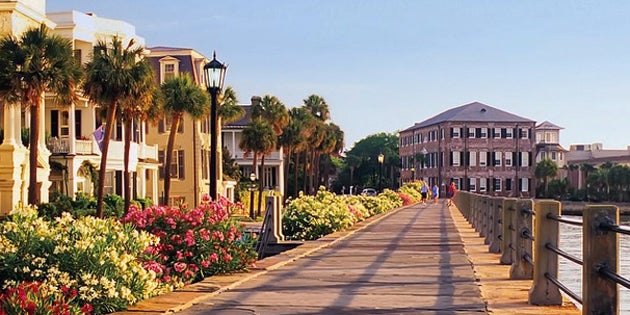It’s about the people. At least that’s what Wayne Smith, hospitality and tourism professor at the College of Charleston, credits for Charleston’s fourth consecutive “No. 1 City in the United States” title from Condé Nast Traveler. Charleston was awarded the titles of “No. 1 City in the World” in 2012, and “No. 1 City in the United States” in 2011 and 2013.
RELATED: Read what Condé Nast Traveler readers say about Charleston.
“I like to tell people from out of town that when they come to Charleston, they’ll never see the bottom of their cup,” Smith said. “Your cup will always be refilled before you even notice you’re running low. That’s just the level of service and friendliness here.”
RELATED: Watch a video that explains the nation’s love affair with Charleston.
 With growing accolades, Charleston has attracted an increasing number of tourists over the last 10 years, calling into question the city’s ability to host more visitors without compromising quality of life for locals.
With growing accolades, Charleston has attracted an increasing number of tourists over the last 10 years, calling into question the city’s ability to host more visitors without compromising quality of life for locals.
“If you look at other cities with growing hospitality tourism industries, no one has balanced tourism with living as well as Charleston has. The people here in this industry understand that what’s good for Charleston is good for everyone, so they’re looking out for the city.” Smith said.
The growth in the Charleston region’s tourism industry is expected to continue. The Charleston City Paper reported that developers and hotel groups have proposed roughly 1,850 rooms in 18 new hotels in peninsular Charleston alone. And Smith believes that North Charleston will share in the future of the local hospitality and tourism industry, as corporate growth there will bring more business travel.
RELATED: Learn more about the Hotel Boom.
Peninsular Charleston’s hospitality and tourism industry will undoubtedly also see growth, and a steady supply of hospitality and tourism management majors will fill much of the need associated with that growth.
“The beauty of this program at the College is that it’s an immersion program,” Smith said. “You can’t escape hospitality and tourism here – the food is everywhere, carriage tours run through campus on a regular basis. These kids can’t help but learn in and out of the classroom, and they graduate ready to work.”
RELATED: Watch how hospitality and tourism management students got involved in the 2012 PGA Championship.
Smith believes the local industry professionals’ willingness to work with students contributes to the entire industry eco-system. “These people care, so they come in and speak in our classes, they work with us on projects and they hire our students. Their kindness breeds more kindness and that attracts more people to Charleston,” he said. “Sure, the food is great and the history is great, but it all comes down to the heart of the city. That’s what makes people feel like guests instead of customers.”




